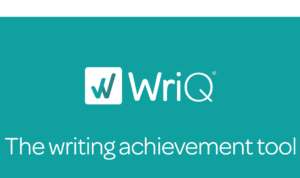NYTimes: Online Scoring Will Lead to More & Better Writing

The standardized tests administered by the states at the end of the school year typically have an essay-writing component, requiring the hiring of humans to grade them one by one. This spring, the William and Flora Hewlett Foundationsponsored a competition to see how well algorithms submitted by professional data scientists and amateur statistics wizards could predict the scores assigned by human graders. The winners were announced last month — and the predictive algorithms were eerily accurate. The competition was hosted by Kaggle, a Web site that runs predictive-modeling contests for client organizations — thus giving them the benefit of a global crowd of data scientists working on their behalf. The site says it “has never failed to outperform a pre-existing accuracy benchmark, and to do so resoundingly.”
Stross continued:
The essay-scoring competition that just concluded offered a mere $60,000 as a first prize, but it drew 159 teams. At the same time, the Hewlett Foundation sponsored a study of automated essay-scoring engines now offered by commercial vendors. The researchers found that these produced scores effectively identical to those of human graders. Barbara Chow, education program director at the Hewlett Foundation, says: “We had heard the claim that the machine algorithms are as good as human graders, but we wanted to create a neutral and fair platform to assess the various claims of the vendors. It turns out the claims are not hype.” If the thought of an algorithm replacing a human causes queasiness, consider this: In states’ standardized tests, each essay is typically scored by two human graders; machine scoring replaces only one of the two. And humans are not necessarily ideal graders: they provide an average of only three minutes of attention per essay, Ms. Chow says.
And,
We are talking here about providing a very rough kind of measurement, the assignment of a single summary score on, say, a seventh grader’s essay, not commentary on the use of metaphor in a college senior’s creative writing seminar. Software sharply lowers the cost of scoring those essays — a matter of great importance because states have begun to toss essay evaluation to the wayside. “A few years back, almost all states evaluated writing at multiple grade levels, requiring students to actually write,” says Mark D. Shermis, dean of the college of education at the University of Akron in Ohio. “But a few, citing cost considerations, have either switched back to multiple-choice format to evaluate or have dropped writing evaluation altogether.”
Stoss thought online scoring could be used in classroom. It is, in fact, used in at least a hundred thousand classrooms. Every South Dakota school uses it (here’s an interview with the SD testing director). And it’s going to get cheaper fast:
Tom Vander Ark, chief executive of OpenEd Solutions, a consulting firm that is working with the Hewlett Foundation, says the cost of commercial essay-grading software is now $10 to $20 a student per year. But as the technology improves and the costs drop, he expects that it will be incorporated into the word processing software that all students use. “Providing students with instant feedback about grammar, punctuation, word choice and sentence structure will lead to more writing assignments,” Mr. Vander Ark says, “and allow teachers to focus on higher-order skills.”
When all students are online all year long and “When sophisticated essay-evaluation software is built into word processing software, Mr. Vander Ark predicts “an order-of-magnitude increase in the amount of writing across the curriculum.”
Stay tuned: on the 18th OpenEd will launch another Hewlett-sponsored prize.







0 Comments
Leave a Comment
Your email address will not be published. All fields are required.